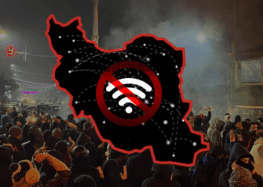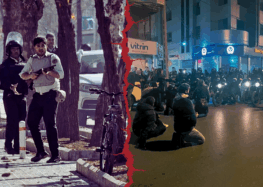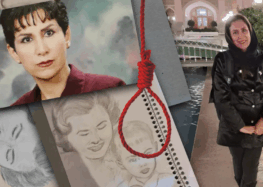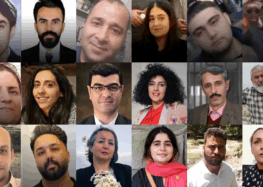Video of Attack on Tehran University Dormitories: Police and Plainclothes Forces Responsible for Brutal Abuse of Students
BBC Persian television station aired a video clip today, which was taped by the attackers of Tehran University dormitories on June 15, 2009, during the post-elections protests. The video,, which has been recorded by attackers themselves clearly demonstrates that police and plainclothes forces made the attack in complete coordination and brutally beat, insulted, and arrested the students.
Considering such irrefutable evidence of the responsible individuals such as police forces and their commanders, including Azizollah Rajab Zadeh, former Tehran Police Commander, the International Campaign for Human Rights in Iran asks the Iranian authorities the reason it has taken them eight months to find the culprits. Is it because there is no will to confront those at fault? Doesn’t this confirm the suspicion that such attacks were coordinated with the highest decision-making organizations of Iran, including intelligence and security organizations? Isn’t neglecting to confront those who committed such savagery at Tehran University and who abandoned many students with severe physical and psychological wounds, a clear violation of the law?
Commander Rajab Zadeh, who was replaced by Hossein Sajedi Nia last week, was appointed to his position as Tehran Police Commander in October 2008, replacing Ahmad Reza Radan. This appointment took place after Commander Radan had been promoted to his position as Deputy Chief Commander of Police. Hossein Sajedi Nia, Azizollah Rajab Zadeh’s replacement, was previously the Operations Deputy of the Police and prior to that, he was Deputy Police Commander of Greater Tehran. With Hossein Sajedi Nia’s appointment as Chief of Police for Tehran, Commander Ghassem Rezaee, former Police Commander for Border Control became Police Operations Deputy.
In the past, police authorities had denied any involvement in the June 15th night-time attack, but the video clearly shows that police forces, along with plainclothes and Basiji forces made the attack in a pre-planned operation. Eight months after the elections, neither the Parliament nor any Judicial authorities have made any effective inquiries for identifying the perpetrators and those who have violated the students’ rights so savagely.
In an interview with Farda Web site in late January, Seyed Mohammad Hassan Aboutorabi Fard, Deputy Speaker of the Islamic Parliament and head of a special commission on Tehran University case stated: “As the Supreme Leader has emphasized [his wish] regarding a review of the incident at [Tehran University] dormitories and identification of those responsible for this tragedy, there is serious will amongst the authorities for this issue and the investigations made by the Special Commission of the Parliament have provided very positive results.” Regarding the reasons for the delay in reading the Commission’s report in a public parliament session, he said: “Considering the report from the Special Committee to review the Kahrizak Detention Center events was read in a public session of the parliament, the report on the [Tehran] University dormitories will be shared with the MP’s at a better opportunity…the report on the Tehran University dormitories [incident] is just as clear and explicit as the Kahrizak Detention Center report and after we have better reviewed the conclusions, it will be read during a public session.” Even so, it is not clear why, despite the report’s being “explicit” and “transparent,” the results of the investigations and names of the culprits and police forces and plainclothes officers cannot be announced and those responsible are not being held accountable.
Hundreds of people who had been arrested without due process and who had been brutally abused both physically and psychologically by the same forces who attacked the Tehran University dormitories have gone through express show trials and have received sentences of years in prison without the benefit of due legal process such as access to their lawyers or having a jury at their trials.






